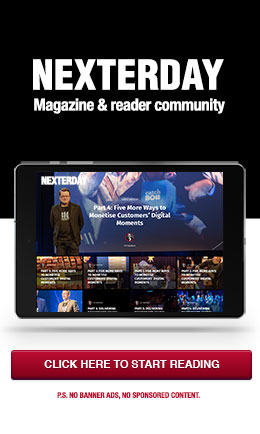Around the World
Posted: April 13th, 2012 | Author: OSS Team | Filed under: Around the World | Tags: 4G, 5G, bill shock, data, leakage, LTE-A, revenue assurance | No Comments »New York Times…
A Ballooning Megabyte Budget
Limited data plans are pushing customers to carefully budget their megabytes and more closely track their mobile usage. Confusion abounds, however, as many consumers aren’t sure how to quantify megabytes, and upgrades to faster devices and networks speeds are encouraging people to use more data-intensive applications but are leaving them to deal with unexpected charges .
To avoid data plan confusion and bill shock, mobile operators are offering tiered data plans and promoting transparent billing by giving customers options for monitoring their data. Some operators, for instance, are sending text messages to update consumers on their allotted and remaining data usage.
According to the article, many customers aren’t aware that data monitoring tools exist or have not used them to budget their data use. Therefore, operators need to improve their customer interactions and demonstrate the value of these resources to help customers take the right steps towards budgeting their megabytes.
Total Telecom…
Leakage Could Cost Mobile Operators $296bn in 2016
According to Juniper Research, if mobile operators fail to update their revenue assurance systems, their revenue losses from leakage could balloon to $296 billion in 2016, up from $58.4 billion. To minimize the risk of fraud, the firm recommends installing a real-time system to monitor and react to criminal activity, in addition to processing and validating all billable transactions.
Supporting this, research from KPMG shows that 50 percent of operators in Africa and the Middle East lose more than one percent of revenue through leakage. Losses can often be linked to improper billing operations, placing additional impetus for operators to ensure their billing systems are properly integrated into the operations support system (OSS) and business processes. As the head of KPMG says, the hope is that these figures act as a “wake up call” for the industry and encourage operators to invest in revenue assurance and fraud management systems to prevent increasing revenue losses.
Light Reading…
Ready or Not, Here Comes LTE-Advanced
Even though Long Term Evolution-Advanced (LTE-A) networks won’t be a mainstream technology until 2015, some operators are making their commercial debut with the technology and claiming to be “LTE-A ready”. This is spurring a debate over what is and isn’t 4G—and even 5G.
As marketplace confusion with network labels grows, savvy customers are increasingly asking, is a network truly LTE-A only when it uses multiple-input, multiple-output (MIMO) orders of 4×4 or higher? At 8×8, does it become worthy of a 5G marketing moniker? The answers to these questions could dictate how operators are able to differentiate their services and respond to customer needs.
According to a Heavy Reading report, despite the debate surrounding LTE-A, the emerging network is worth paying attention to because its ultimate impact will be widespread. Do you agree with the report’s prediction that LTE-A will dominate the global market? And what do you think is the value of knowing an operator is “LTE-A ready”?





